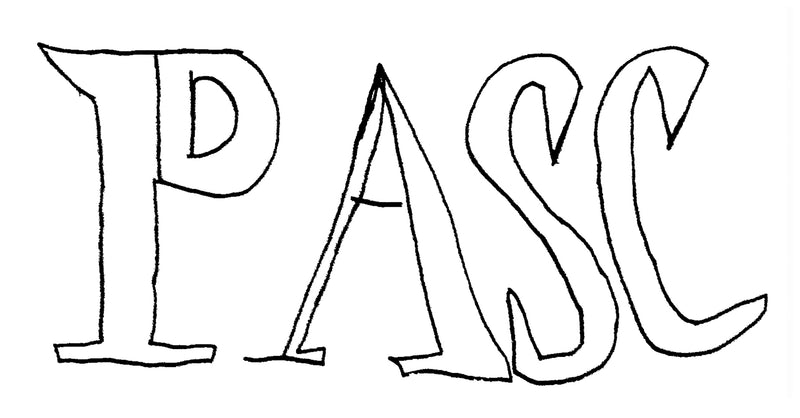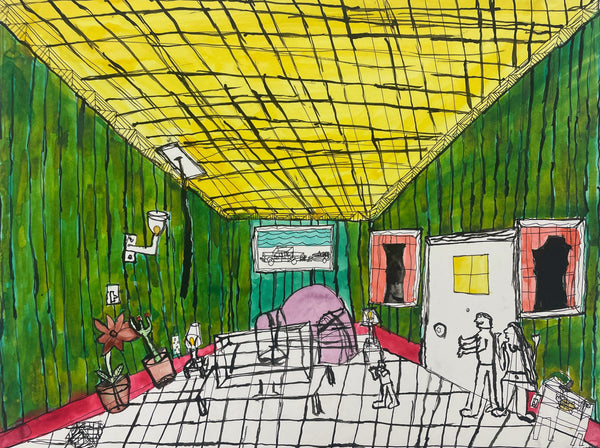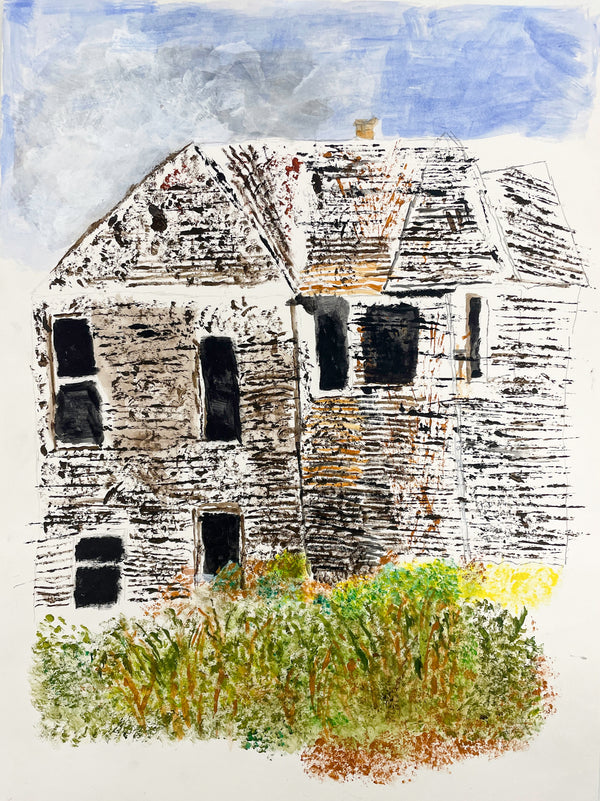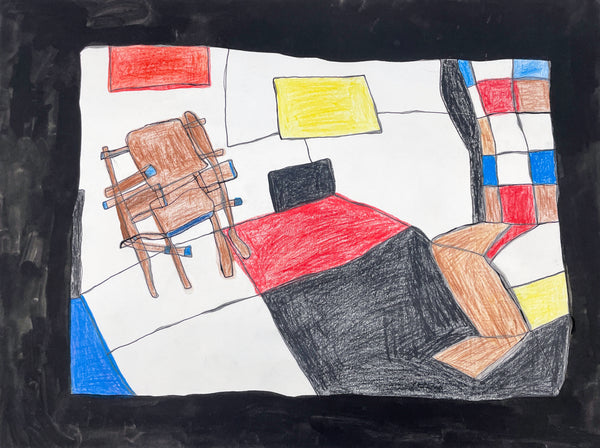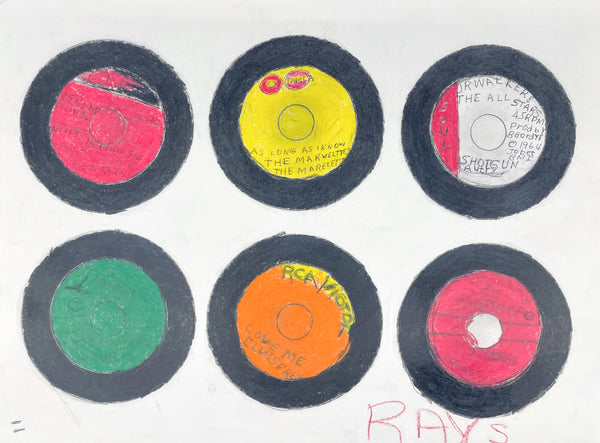When I Get Home

Caleb Brazille. Fire Scene Mantlepiece (2024). Pen and colored pencils. 24 x 18 in
Participating artists: Denny Assenmacher, Rubin Bates, Jamille Berry, Caleb Brazille, Jerri Burks, Micah Carter, Dennis Cenzer, Ashley Hawkins, Lewis Foster, Nick Granch, Constance Haliburton, Phillip Kraft, Larry Kimbrough, Ryan McDonagh, Nataniel McNeil, John Peterson, Bruce Rice, Ray Smith, Rodney Stephens, & Major Washington.
Curated by Amber Nax
Opening: December 12, 5-7pm
Exhibition Dates: December 12, 2024 - January 11, 2025
Location: PASC Detroit Gallery
9301 Kercheval Ave, STE 2, Detroit, MI 48214
Gallery Hours: Th, Fr and Sa, 12–3pm and by appointment
When I Get Home is a group exhibition featuring 27 artworks from artists from all three PASC studios, many of the artists are exhibiting for the first time. The artists in this collection (re)value their connections to ‘home’ through depictions of intimate spaces and residential exteriors, evoking a sense of nostalgia or desire for places that may feel safe, secure, and supportive. Home is typically characterized as a place of comfort, stability, and safety, a refuge from the harsh realities and polarizing forces of today’s world. More than just shelter, domestic spaces provide nourishment for the soul, underscoring the importance of truly feeling “at home” in one’s home.
The living room mantelpieces portrayed by Caleb Brazill and Dennis Cenzer present intimate domestic objects. Artworks from Ray Smith and Ashley Hawkins celebrate Motown musicians and LP records, a familiar soundtrack in many Detroiters' homes, playing in the background during household routines. And portraits featured in this collection represent the framed family photos that line the walls of hallways and living rooms, emulating the familiar memories and faces that shape our sense of place.
These sentimental private spaces are a stark contrast to the vulnerability many feel in public life. In her 1958 book “The Human Condition”, German-American philosopher Hannah Arendt defined the political as any action performed in public, asserting that for something to be political, it must happen in the public sphere. Challenging this view, Korean American artist, writer, and musician Johanna Hedva in their 2016 essay “Sick Woman Theory”, argues that Arendt’s definition doesn’t consider who is granted access to public spaces, who holds power, and more specifically, who controls visibility within the public.
To belong is to feel ‘at home’. In many ways home can be a haven, a place associated with safety, comfort, domesticity, and intimacy. However, for some, home is far from a refuge, becoming instead a source of strife, marked by poor family dynamics and a lack of autonomy. For the disabled population, limited access to public spaces restricts individuals from fully participating in the public. During the pandemic, many disabled people experienced even greater isolation in their homes, cut off from essential social services, conduits to public life. In this sense, ‘the political’ is simply the act of daring to be seen.
Creating art is an act of bridging the personal and the political or in this sense the private and the public. When an artist creates an artwork, they are making an object that will communicate their personal perspective to an audience, presented in a public or semi-public space of the gallery. Furthermore, art organizations like PASC bridge the personal (home) and the political (public) by developing art studios into extensions of home, by creating spaces of comfort, trust, confidence building and person-centered care, within which to create.
Amber Nax (she/her) is a multidisciplinary artist and independent curator, native to Detroit, MI. She earned her B.F.A. from Wayne State University, focusing on Black American and African history, contemporary art, and folklore. Most recently, Nax curated Adler & Adler, an exhibition of archival photos from 1940s-70s Black Bottom Detroit, at the Southside Community Art Center in Chicago, IL (2024). She currently serves as Gallery Assistant at PASC Detroit Gallery (2024) and holds the ICI Forum Research Fellowship based in Chicago, IL (2024).
Launched in 2021, PASC is the first progressive art and design studio and exhibition program in Detroit and Wayne County dedicated to supporting artists with developmental disabilities and mental health differences to advance artistic practices and build individual careers in the art and design fields.
PASC is a program of Services to Enhance Potential (STEP), a non-profit service organization founded in 1972 that provides services and support for more than 1,400 individuals with disabilities and mental health differences across Southeastern Michigan.
